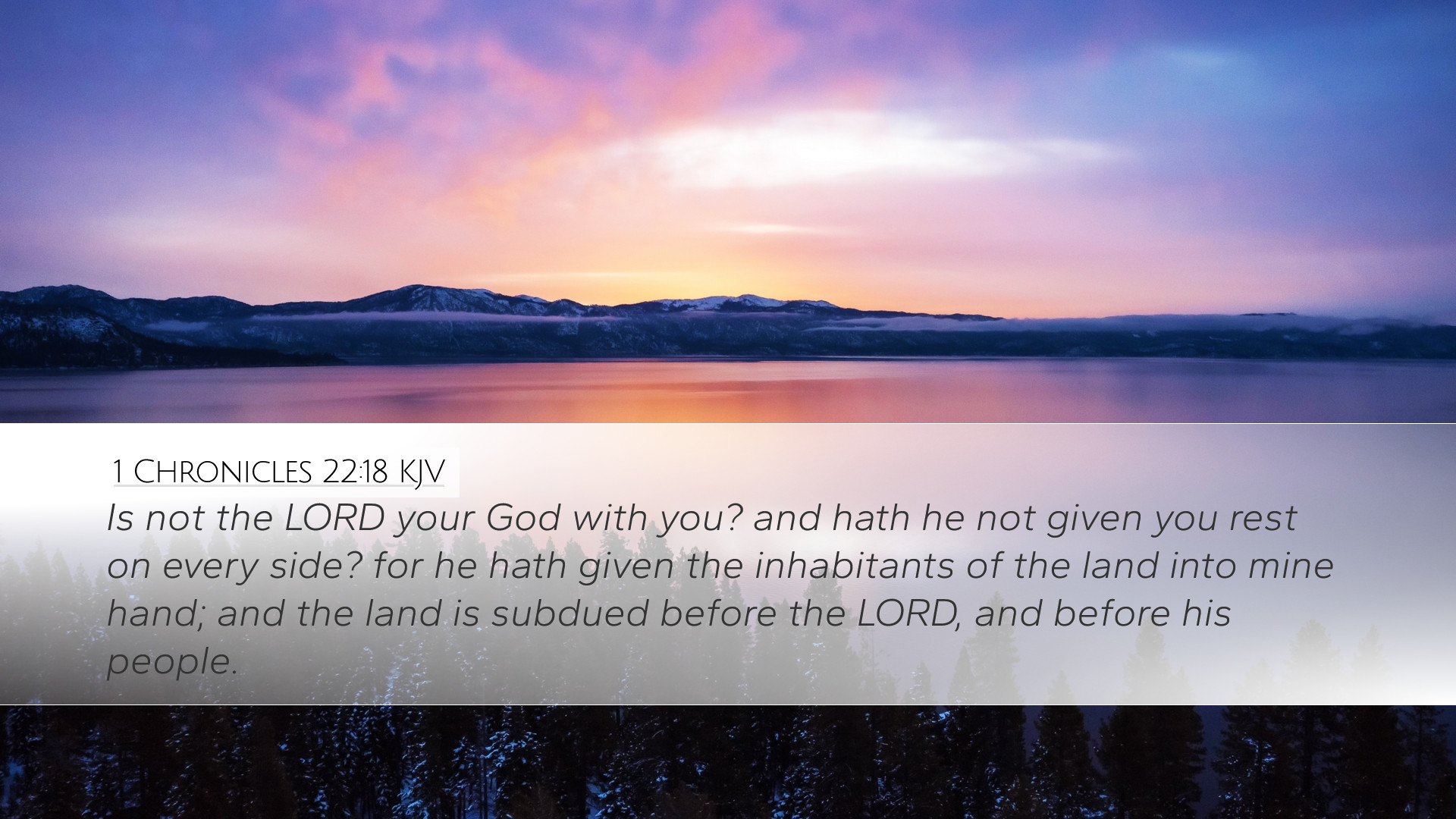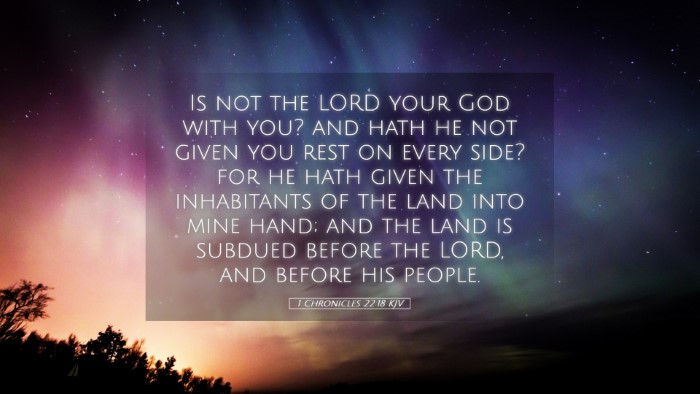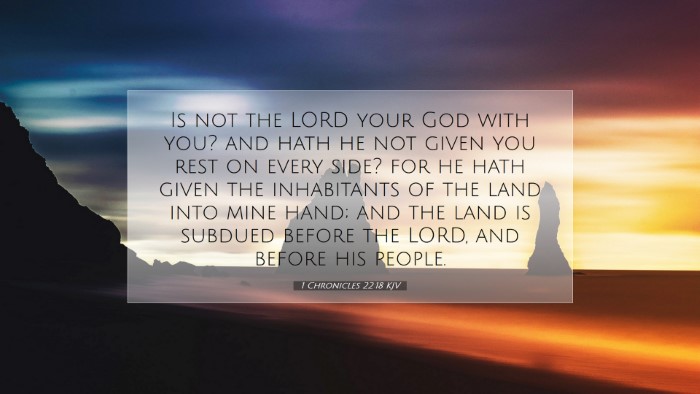Commentary on 1 Chronicles 22:18
Verse: "Is not the Lord your God with you? And has He not given you rest on every side? For He has given the inhabitants of the land into my hand, and the land is subdued before the Lord and before His people." (1 Chronicles 22:18, NKJV)
Introduction
In this pivotal verse from 1 Chronicles, David addresses the people of Israel during a time of preparation for the temple. This moment is critical as it signifies both a physical and spiritual transition for the nation. David articulates God’s presence, provision, and the calling of the people to pursue liberty and fulfillment of their divine mandate. Let us delve into the insights offered by various public domain commentators.
Summary of Commentaries
Matthew Henry's Commentary
Matthew Henry emphasizes the assurance of God's presence as the cornerstone of Israel's security and success. He reflects on the covenant relationship established by God with Israel, stressing that divine assistance is integral to their endeavors. Henry notes that God's rest bestowed upon them was not merely physical but also spiritual, indicating a peace that comes from being in alignment with God's will.
Furthermore, Henry remarks on the significance of David's leadership and his role in consolidating the people towards a common purpose—building the temple. He highlights the connection between God's promises and the obedience required from His people to fulfill their destiny. The underlying theme in Henry's view is one of reliance on God’s strength as they embark upon monumental tasks.
Albert Barnes' Notes on the Bible
Albert Barnes contextualizes this verse within the broader narrative of Israel's history. He suggests that the inquiry posed by David, "Is not the Lord your God with you?" serves as both a reminder and a challenge to the people. Barnes posits that the rest they have received was not an end in itself but a divine preparation for greater undertakings—the construction of the temple, which symbolizes worship and the centrality of God in their community.
Barnes also underscores the significance of God's providence in overcoming the inhabitants of the land. He interprets "the land is subdued" as an expression of God’s sovereignty over Israel’s enemies. This victory is seen as both a privilege and a responsibility, urging the people to act out of gratitude and commitment to God’s plan.
Adam Clarke's Commentary
Adam Clarke provides a detailed exploration of the verse, emphasizing the covenant promises of God. He notes that the phrase "rest on every side" encompasses not only peace from physical enemies but also a deeper sense of spiritual tranquility that comes from walking in obedience to God's commands. Clarke suggests that this rest signifies God’s faithfulness to His covenant and that the people should actively respond to this grace.
Moreover, Clarke highlights the anticipation of future struggles as they proceed with the task of building the temple. He encourages readers to see this moment as a convergence of faith and action, where reliance on God’s past interventions should embolden them for future endeavors. Clarke’s interpretation invites the audience to embrace the challenges ahead while remaining steadfast in their trust in God.
Theological Implications
The assurances given in 1 Chronicles 22:18 resonate deeply with themes of God’s sovereignty, providence, and the transformative power of obedience. The text serves as a reminder that rest in the Lord is both a privilege and a divine enablement for further responsibilities. It invites pastors, students, and scholars to reflect on their roles within their communities, recognizing the need for divine assistance in all endeavors.
This verse also challenges contemporary minds to consider how God’s past faithfulness is foundational for present and future faith actions. In a world filled with uncertainties, the call to trust in God’s presence and provision remains as vital today as it was for Israel. The communal aspect of David’s exhortation encourages the body of believers to unite under God’s guidance, leading to greater spiritual and communal growth.
Conclusion
In summary, 1 Chronicles 22:18 serves as both a historical account and a theological statement that speaks profoundly to the hearts of believers. The commentaries by Matthew Henry, Albert Barnes, and Adam Clarke offer valuable insights that illuminate the text's meaning and its implications for the church today. By understanding this verse, we are reminded of the importance of recognizing God's presence, responding to His call, and facing new endeavors with courage and faith.
Reflection Questions
- How can we apply the teachings from 1 Chronicles 22:18 in our personal and communal lives today?
- In what areas of our ministry or study do we need to acknowledge God’s presence and provision?
- What does it mean for us to actively seek rest in the Lord while pursuing responsibilities He has set before us?


